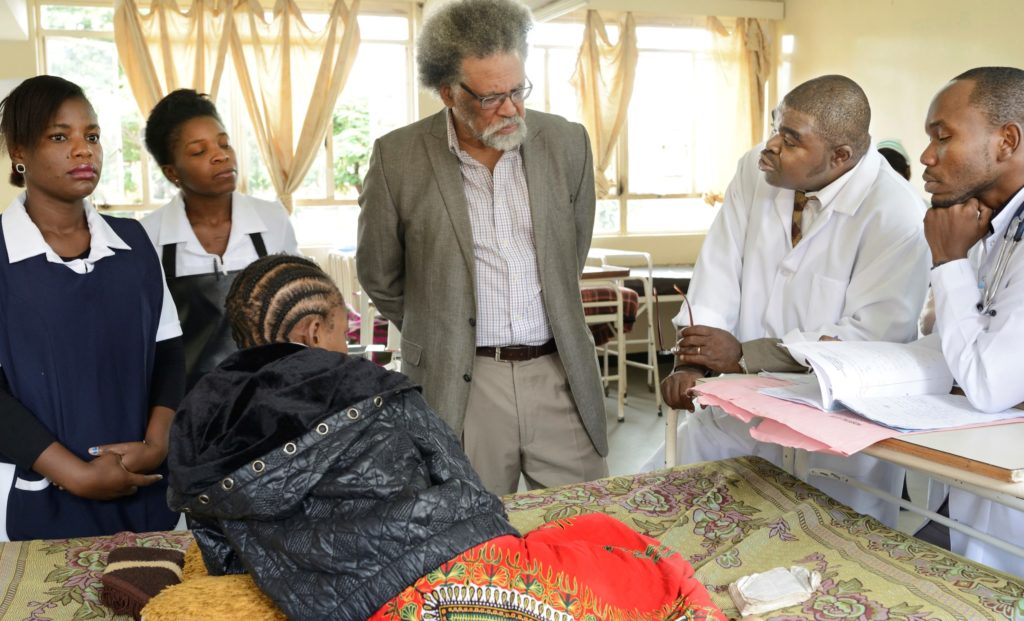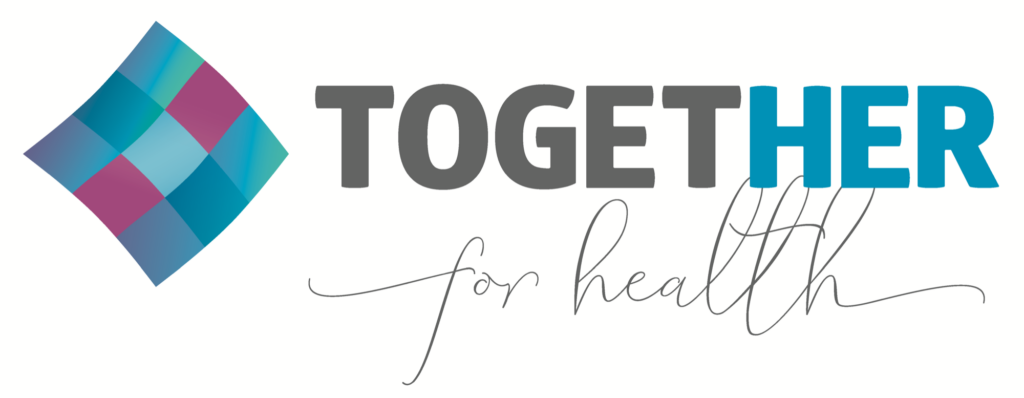The TogetHER Interview: Prof. Groesbeck Parham, University of Zambia / University of North Carolina

October 21, 2020
The impact of COVID-19 on global cervical cancer prevention efforts has been wide-ranging, with unclear long-term ramifications. Our new TogetHER Interview series provides an opportunity for key leaders in global cervical cancer control to discuss current challenges and provide perspective on where the field needs to go from here.
This installment of the TogetHER Interview series features Prof. Groesbeck Parham, Honorary Consultant at the University of Zambia and professor of gynecologic oncology in the department of obstetrics and gynecology at the University of North Carolina at Chapel Hill .
Header photo credit: Friends of Africa, Inc. Headshot credit: University of North Carolina.

How have you and your organization been impacted by and adapted to COVID-19?
Most of my present work in the area of cervical and breast cancer control in Africa (Zambia) is done through my affiliation with two organizations, the University of North Carolina, Chapel Hill (USA) and the University of Zambia. I live and work in Zambia and my office is located at the University Teaching Hospital, one of Zambia’s two tertiary care facilities. Our present focus is on building workforce capacity for gynecologic cancer surgery and increasing access to the early detection and treatment of cervical and breast cancer, with a focus on women living with HIV. All of our clinical work and research is executed in the Zambian government’s public health clinics and hospitals.
COVID-19 is a threat to the lives and health of patients and health providers. We had to take extra precautions to protect both groups, while keeping the doors open so women could access cancer prevention and treatment services and our research activities could continue. When the pandemic peaked in Zambia the numbers of women seeking cancer prevention services decreased by about 40%, which also impacted our research enrollment since we recruit study participants from the pool of women seeking routine services. In order to compensate for the drop in enrollment we reached out to new populations of women through traditional healers, commercial sex worker organizations, and health facilities in the private sector.
What concerns you most about women’s health in low-resource countries during the pandemic? How do you see cervical cancer prevention – the HPV vaccine and screen-and-treat –coming back after the pandemic, and what can we do now to prepare for the resumption of services?
My concerns are no different with or without COVID. What I know, without any doubt, after having worked on the problems of cervical and breast cancer in Africa for over 20 years, 15 of those which I have lived in Zambia full time, is the following: If early detection clinics are set up with the woman in mind, if health providers have the tools they need and the proper training and support, if services are offered in such a fashion that they show respect for the woman’s dignity, confidentiality, and safety, then the system will work, and we can eliminate these diseases or detect them early enough so they can be cured.
The problem I see is that we are spending too much time and too many resources talking about the problem, convening (now virtually) to discuss the problem, writing about the problem, rather than getting on the battlefield and solving the problem. Eliminating cervical cancer and downstaging breast cancer is hand to hand combat. One HPV vaccination at a time. One cervical cancer screening at a time, even using HPV testing and artificial intelligence-based apps, one breast examination and ultrasound-guided breast biopsy at a time. One radical hysterectomy and breast lumpectomy/mastectomy at a time. There is no way around it, not at this time. What we are lacking are major investments in the implementation of services. Until that happens it doesn’t matter if we are operating inside or outside of a viral pandemic. What are we doing as an organization? We are doing all that we can, but we don’t have enough financial support.

“. . . if services are offered in such a fashion that they show respect for the woman’s dignity, confidentiality, and safety, then the system will work, and we can eliminate these diseases or detect them early enough so they can be cured.”
Photo credit: Friends of Africa, Inc.

Ask anybody who is actually engaged in the day-to-day fight against these diseases in Africa and they will tell you the same thing. We are still watching women march to the graveyard with incurable cancers that could have been prevented. Young women. Women with children. We need more clinics, more supplies, more equipment, more operating rooms, more people trained to do the work. . . more people to commit to the work.
What is something you have learned during COVID-19 that makes you hopeful?
What has been confirmed, not learned, is that the people who are committed to providing services will always find a way. Those who are not committed will always find an excuse.
Interested in reading more TogetHER Interviews with leaders in the global cervical cancer response? Click here for the full list.

Groesbeck P. Parham has devoted his professional life to improving the lives of the world’s poor through efforts to reduce inequalities in health care by increasing opportunities for training, access to service, and through implementation research. He earned his B.S. from Oberlin College and M.D. from the University of Alabama at Birmingham. He is professor of gynecologic oncology at the University of North Carolina at Chapel Hill. Dr. Parham founded the Cervical Cancer Prevention Program in Zambia, where he has lived for the past 15 years. As a leader in combating women’s cancers in resource-constrained global environments, he developed an innovative system for cervical cancer screening in which trained nurses use simple household vinegar and a digital camera. This program has served more than 1 million Zambian women, and is being leveraged to create a form of low-cost automated cervical cancer screening based on artificial intelligence. His work has been supported by Pink Ribbon Red Ribbon, a public-private partnership to prevent cervical and breast cancer in Africa and Latin America, co-founded by the George W. Bush Institute. His many honors include awards from the Society of Gynecologic Oncology, the Congressional Black Caucus, the United Nations and honorary doctorate degrees from Oberlin College and Southern Methodist University. To learn more about his work go to thefriendsofafrica.org
